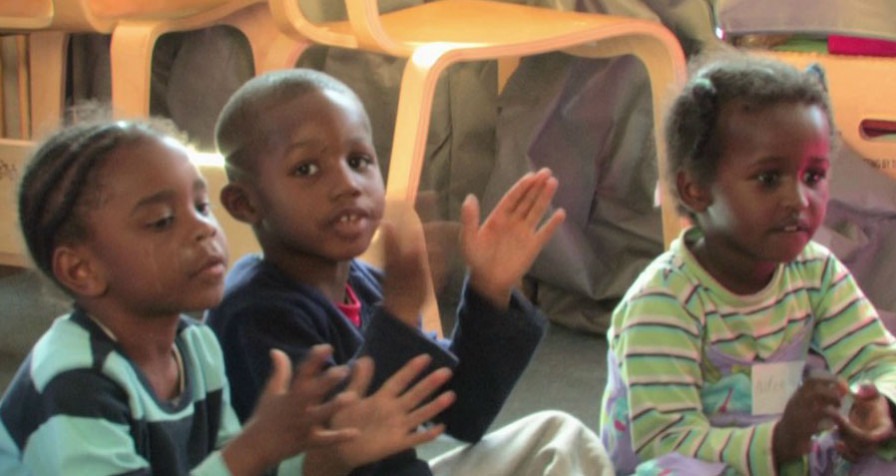LSO Discovery: Variety

LSO Discovery, the London Symphony Orchestra’s community and music education programme, has a long-standing early years strand and offers a range of opportunities in music for young children and their parents including weekly sessions, workshops and family concerts. This resource was created for the Youth Music Spotlighting module by Dr Susan Young, lecturer at the University of Exeter and Alison Harmer, film maker and editor, with the support of LSO Discovery.
Variety is a strong theme running through the LSO sessions, and visiting musicians introduce new sounds and respond to the needs of the participants in many engaging ways.
Clearly no repetition is exactly the same – so variation is always a key part.
Variation is for musical reasons and pedagogical reasons, and the two can overlap. We may vary by:
Changing the pace:
A song or movement activity may be performed at different tempi (speeds). Doing something very slowly may give the children a chance to pitch their voices clearly, coordinate their movements and will help to calm. Doing something very fast raises the excitement and enjoyment levels and also asks the children to learn to control their voices and/or body movements.
Changing the pitch:
A song can be sung at different pitches, or an instrument play different pitches, to create musical interest, to give children a chance to explore the range of their voices and to help them perceive and learn about changes of pitch.
Changing the dynamic:
Varying the loud and soft of musical sounds, singing and movements adds drama and mood. Very quiet sounds can encourage attentive listening. Loud sounds can raise excitement, or even cause some young children distress, but used carefully can be thrilling.
All too often musical activities for young children are performed uniformly with little variation; medium pace, medium loudness and at the same pitch. Recorded songs are usually ‘up-beat’, party style in pace and dynamic and are often too fast for children to sing along with and offer little musical change of mood.
Give and take
While at first the ‘give’ with a new activity introduced by the adult may come almost entirely from the adult and the ‘take’ be all from the children, as the song and activity becomes known, the balance can change, so that ‘give’ is from the children and the ‘take’ from other children and the adult.
Click on the links at the bottom of the page to see more videos and notes on key aspects of the LSO’s early years programme.
